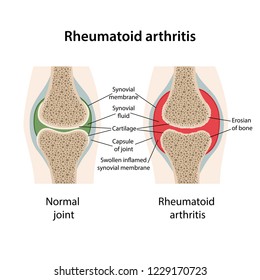Drag The Labels Onto The Diagram To Identify The Parts Of A Knee Jerk Reflex
Visit the post for more. Answer to part a drag the labels onto the diagram to identify the parts of a knee jerk reflex.
Drag the labels onto the diagram to identify the parts of a knee jerk reflex.

Drag the labels onto the diagram to identify the parts of a knee jerk reflex. Explain how this reflex may be important during walking if you didnt notice a dip in the sidewalk and stepped into it. Myofibril bundled thick and thin filaments contains a chain of sarcomeres 4. Are stretch receptors inside skeletal muscles.
Joints ligaments and connective tissues advanced anatomy 2nd ed diagram demonstrating the anterior left and posterior right of the knee joint boney structure and articulations. What is the role of reciprocal inhibition. Myosin light chain kinase myosin light chain phosphatase myosin heavy chain tropomyosin like smooth muscle cells cardiac muscle is under hormonal control.
Label the components of a knee jerk reflex part a drag the labels onto the diagram to identify the parts of a knee jerk reflex. Part a drag the labels onto the diagram to identify the parts of a knee jerk reflex. Physiology chapter 13 assignment ml.
T tubule transmit the action potential deep inside the fiber to the terminal cisternae 5. They are electrically linked to one another. Part a drag the labels onto the diagram to identify the parts of a monosynaptic reflex arc.
What is the physiological function of this reflex. How would the reflex be affected if reciprocal inhibition failed. In a stretch reflex what causes the response to stop.
A reflex hashave at least one interneuron. It consists of five general components namely the receptor for the stimulus the sensory neuron transmitting afferent impulses to the cns the control center within the cns the motor neuron transmitting efferent impulses away from the cns and the effector which respond to the afferent impulses with the specific motor response. Sarcolemma plasma membrane 3.
Label the parts of a monosynaptic reflex arc. 68 diagram and label the knee jerk reflex. Triad 2 terminal cisternae and a t tubule in between 2.
Solved drag the labels onto the diagram to identify the p drag the labels onto the diagram to identify the parts and ligaments of the elbow joint. The patellar tendon k monosynaptic. Label the components of a knee jerk reflex part drag labels onto reflex arc of the knee reflexes are quick involuntary reaction to a stimulus here we see jerk first somatic receptors in figure 21 3 the patellar knee jerk reflex a specific example of stretch block diagram of the control system involving stretch reflex this controls muscle length houk j henneman e feedback.
Terminal cisternae widened sarcoplasmic reticulum that receive t tubule.
 Biology 223 Study Guide 2013 14 Lockwood Instructor Lockwood At
Biology 223 Study Guide 2013 14 Lockwood Instructor Lockwood At
 The Nervous System The Spinal Cord And Spinal Nerves
The Nervous System The Spinal Cord And Spinal Nerves
 Reflexes Boundless Anatomy And Physiology
Reflexes Boundless Anatomy And Physiology
 The Children S Society Essex Core Shared Content For A Manual Of
The Children S Society Essex Core Shared Content For A Manual Of
 Leading Blog A Leadership Blog
Leading Blog A Leadership Blog
 Solved Label The Components Of A Knee Jerk Reflex Part A
Solved Label The Components Of A Knee Jerk Reflex Part A
 Motor Disorders Clinical Neurology 10e Accessmedicine Mcgraw
Motor Disorders Clinical Neurology 10e Accessmedicine Mcgraw
 A Amp P Human Reflex Physiology Pdf Human Reflex Physiology Human
A Amp P Human Reflex Physiology Pdf Human Reflex Physiology Human
 Human Physiology Biology 4 Laboratory Exercises
Human Physiology Biology 4 Laboratory Exercises
 8 4 Bones Of The Lower Limb Anatomy And Physiology
8 4 Bones Of The Lower Limb Anatomy And Physiology
 Ssc Survey 2017 Results Slate Star Codex
Ssc Survey 2017 Results Slate Star Codex
 The Injured Patient Section 2 Trauma
The Injured Patient Section 2 Trauma
 14 5 Sensory And Motor Pathways Anatomy Physiology
14 5 Sensory And Motor Pathways Anatomy Physiology
 Human Physiology Print Version Wikibooks Open Books For An Open World
Human Physiology Print Version Wikibooks Open Books For An Open World
 2 Minute Neuroscience Knee Jerk Reflex Youtube
2 Minute Neuroscience Knee Jerk Reflex Youtube
 A P Chapter 11 Nervous System 2 Homework Example Graduateway
A P Chapter 11 Nervous System 2 Homework Example Graduateway
 Drag The Labels Onto The Diagram To Identify The Parts Of A Knee
Drag The Labels Onto The Diagram To Identify The Parts Of A Knee
 Bursitis Knee Joint Main Parts Labeled Stock Vector Royalty Free
Bursitis Knee Joint Main Parts Labeled Stock Vector Royalty Free
 In Depth Reports Trihealth Discover The Power Of Unity Restless
In Depth Reports Trihealth Discover The Power Of Unity Restless
 Exercise 3 The Peripheral Nervous System And Reflex Arcs
Exercise 3 The Peripheral Nervous System And Reflex Arcs
 11 6 Appendicular Muscles Of The Pelvic Girdle And Lower Limbs
11 6 Appendicular Muscles Of The Pelvic Girdle And Lower Limbs
 14 5 Sensory And Motor Pathways Anatomy Physiology
14 5 Sensory And Motor Pathways Anatomy Physiology



0 Response to "Drag The Labels Onto The Diagram To Identify The Parts Of A Knee Jerk Reflex"
Post a Comment